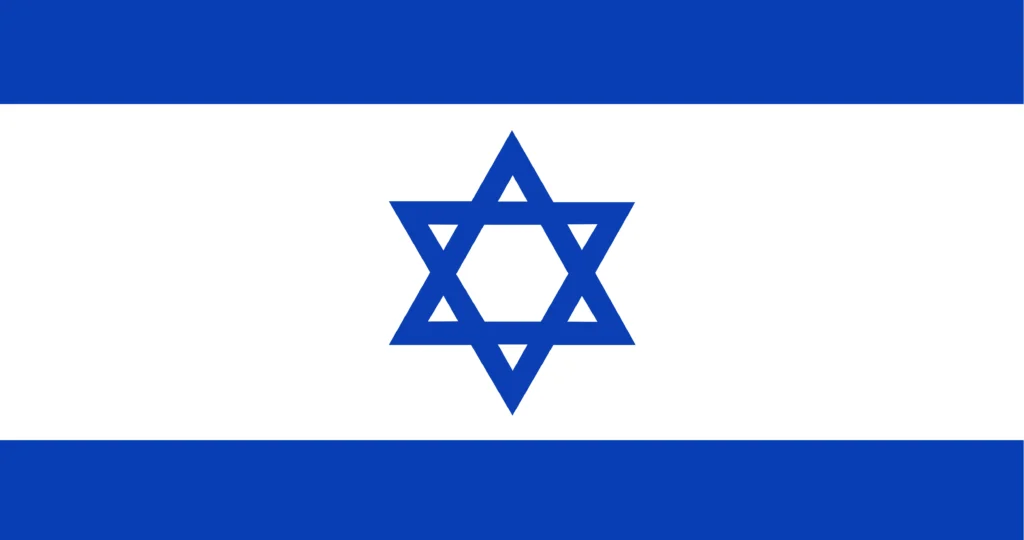Israel, officially known as the State of Israel, is a Middle Eastern country nestled in the Middle East, bordered by the Mediterranean Sea to the west, Egypt to the southwest, Jordan to the east, and Lebanon and Syria to the north. Its capital city, Jerusalem, is a sacred place for three major world religions: Judaism, Christianity, and Islam.

Israel Historical Background
Israel’s historical roots run deep, dating back thousands of years. Archaeological discoveries reveal evidence of human settlements in the region as early as 3000 BCE. Throughout antiquity, the land witnessed the rise and fall of various empires and civilizations, including the Canaanites, Israelites, Assyrians, Babylonians, Persians, Greeks, and Romans.
The significance of Israel in the Abrahamic religions—Judaism, Christianity, and Islam—cannot be overstated. It’s considered the Holy Land, with Jerusalem at its heart, a city revered by millions across the world. The Western Wall, Church of the Holy Sepulchre, and Al-Aqsa Mosque are just a few of the many sacred sites that dot the landscape.
Modern Israel: A Socio-Economic Overview
Today, Israel is a thriving nation with a population of approximately 9.3 million people. Hebrew and Arabic are the official languages, and the country boasts a high standard of living, a well-developed infrastructure, and a strong emphasis on education and technological advancement.
Israel’s economy is one of the most advanced in the Middle East. With a Gross Domestic Product (GDP) exceeding $400 billion, the nation has earned the moniker “Start-Up Nation” due to its prolific high-tech industry, innovation, and research and development initiatives. Major sectors include technology, agriculture, tourism, manufacturing, and natural resources.
Geographical Diversity and Landscapes
The geographical features of Israel are incredibly diverse for a country of its size. Its landscape ranges from the lush, fertile valleys of the Galilee and the Golan Heights in the north to the arid, rocky Negev Desert in the south. The country is bordered by the Mediterranean Sea to the west, providing a beautiful coastline with golden beaches and vibrant cities.
Notably, the Dead Sea, situated at the lowest point on Earth, is a remarkable geographical phenomenon. Its extremely high salt concentration allows swimmers to float effortlessly, and the mud and minerals are known for their therapeutic properties.
Cultural Melting Pot
Israel is a melting pot of cultures, traditions, and religions. The nation’s population includes a mix of Jewish, Arab, Druze, Bedouin, and various other ethnic groups. Each community contributes to the rich cultural tapestry, offering a unique blend of customs, festivals, music, dance, and cuisine.
Culinary delights are a significant aspect of Israeli culture. Dishes like falafel, hummus, shawarma, and shakshuka have gained international popularity. The fusion of flavors and diverse culinary influences make Israeli cuisine a gastronomic adventure.
Peace and Diplomacy
Israel, amidst its historical and contemporary challenges, continues to pursue peace and stability in the region. Diplomatic efforts and peace agreements are significant components of its foreign policy. The Abraham Accords, signed in 2020, mark a historic milestone, normalizing relations between Israel and several Arab nations, fostering a new era of collaboration and understanding.
In conclusion, Israel’s historical significance, diverse culture, thriving economy, and commitment to peace underline its global importance. By delving into its past and present, we gain a deeper appreciation of its unique position and its role in shaping the dynamics of the Middle East.
A Glimpse into History
Israel’s history is like an epic tale filled with triumphs, challenges, and resilience. It dates back thousands of years and is intricately intertwined with the stories of ancient civilizations. The ruins of cities like Jericho and Megiddo offer glimpses into life during biblical times. Meanwhile, the Dead Sea Scrolls found in the Qumran Caves shed light on ancient Jewish writings.
The Magic of Jerusalem
Let’s zoom in on Jerusalem, a city often dubbed the “City of Gold” for its stunning sunsets. Within its ancient walls, you’ll find the Western Wall, a sacred site for Jewish prayers, and the Church of the Holy Sepulchre, believed to be the place where Jesus was crucified and buried. The Dome of the Rock, a symbol of Islamic architecture, graces the skyline.
Natural Wonders and Landscapes
Israel’s diverse geography offers a plethora of natural wonders. The Dead Sea, the lowest point on Earth, allows you to float effortlessly due to its high salt content. Explore the lush beauty of the Galilee region, hike the picturesque trails of the Negev Desert, and unwind on the pristine beaches of Tel Aviv.
Cultural Fusion and Traditions
Israel is a true melting pot of cultures and traditions. The Jewish, Arab, Druze, and Bedouin communities each bring their unique customs, music, dance, and, of course, delicious cuisine to the table. You’ll often find lively markets, like Mahane Yehuda in Jerusalem and Carmel Market in Tel Aviv, where the aromas and colors of the diverse food stalls will tantalize your senses.
Building Bridges of Peace
Despite its historical and political complexities, Israel works tirelessly to build bridges of peace. Efforts are made to promote understanding and coexistence among diverse communities. Initiatives like the Hand in Hand bilingual schools, where Jewish and Arab students learn together, aim to foster a future of harmony and unity.
In conclusion, Israel is a land of contrast and coexistence, where history, culture, and nature converge to create a captivating tapestry. By understanding its rich past and present, we can appreciate the unique role this small yet influential nation plays in our global community.